Live A Live on Switch
Live A Live is unlike any JRPG I have ever played. It was way ahead of its time when it was released in Japan for the Super Famicom in 1994, and it’s a shame that the rest of the world didn’t get to experience it back then. Fortunately, Square Enix decided it was time that this ambitious game was remade and introduced to new audiences in 2022.
What makes Live A Live stand out from other JRPGs is that instead of building a party of characters around a singular protagonist throughout the game, the story is split into eight very distinct scenarios. They are so distinct that they have very little to do with each other at all, or at least that’s what it seems at first.
Each of the eight scenarios you’ll play through features characters from all different time periods, from a cave boy in prehistory all the way to a robot in the distant future.
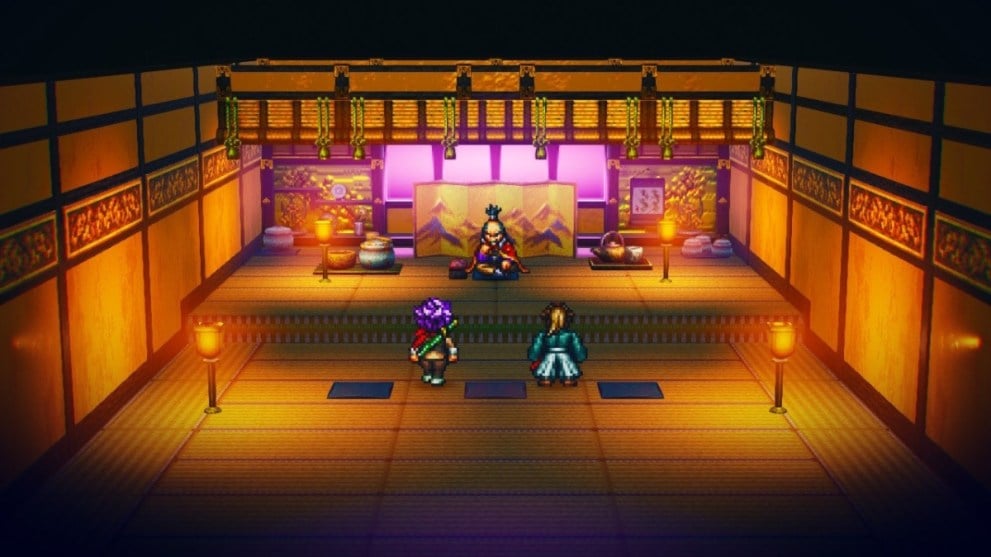
Not only are the characters and time periods in each scenario unique, but the variety in gameplay and objective is also different in each one as well. Only the grid battle system remains the same throughout each chapter.
From the very start of the game, you can choose to do seven of the scenarios in any order you want, and it truly does not make any major difference in the end how and when you tackle them. When choosing the next scenario you want to play, the game shows you a picture of the character, their time period, and a few sentences of what their story is about.
I realize it’s a bit stereotypical to say “there’s a little something for everyone,” but that kind of feels true in Live A Live. Let me explain.
The earliest time period, Prehistory, tells the entire story without any words. I played as a young caveman who becomes old enough to hunt for the first time and, along with his gorilla friend, discovers a woman in need of help. At first, it was a little odd figuring out what to do when all of the characters communicated in gestures and symbols above their heads, but the humor came through loud and clear throughout this scenario.
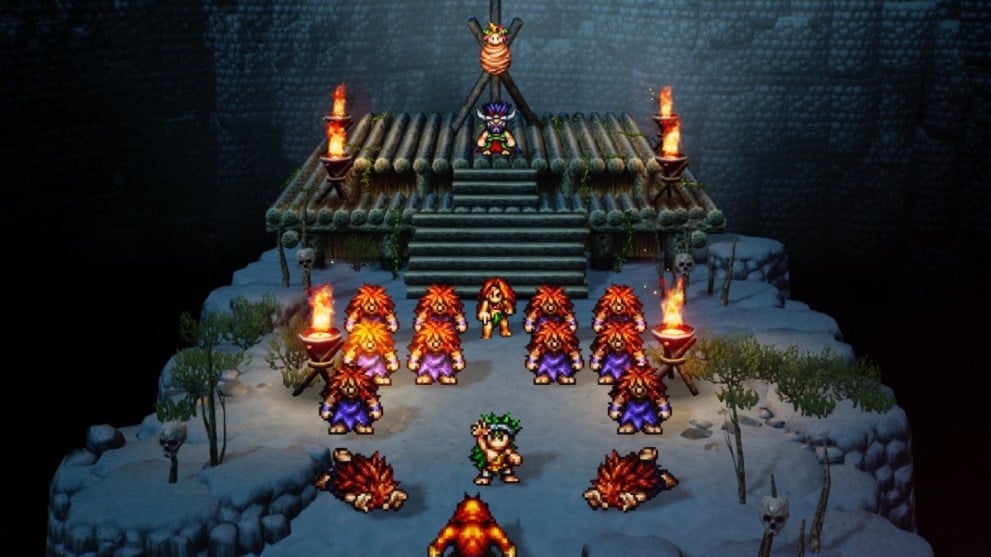
In the present day time period, there’s hardly any depth to the story at all. This scenario is basically a long game of Street Fighter but with a twist—my character learned each attack that hit him, so I realized quickly that it was actually advantageous to prolong some of the battles to learn more moves before the next fight. Normally in RPGs, I attack with full brute force, so it was fun to approach these fights differently.
Alternately, in the distant future scenario, the focus was way more on the story than it was on fighting. I played as an adorable sentient robot with all of the beeps and whistles that reminded me of Wall-E. This scenario took place entirely on a spaceship with a handful of other characters who each had their own complex relationships with one another, and their problems became apparent as the story unfolded. The progression here relied on interaction with these characters rather than combat.
Other scenarios gave me options. In Edo Japan, I played as a ninja who could reach his objective stealthily and peacefully, or instead, he could slay every enemy in his path. In the Wild West scenario, which was one of my favorites, I played as an outlaw who helped the terrified but determined townsfolk decide the best way to take down a group of bandits that were terrorizing them.
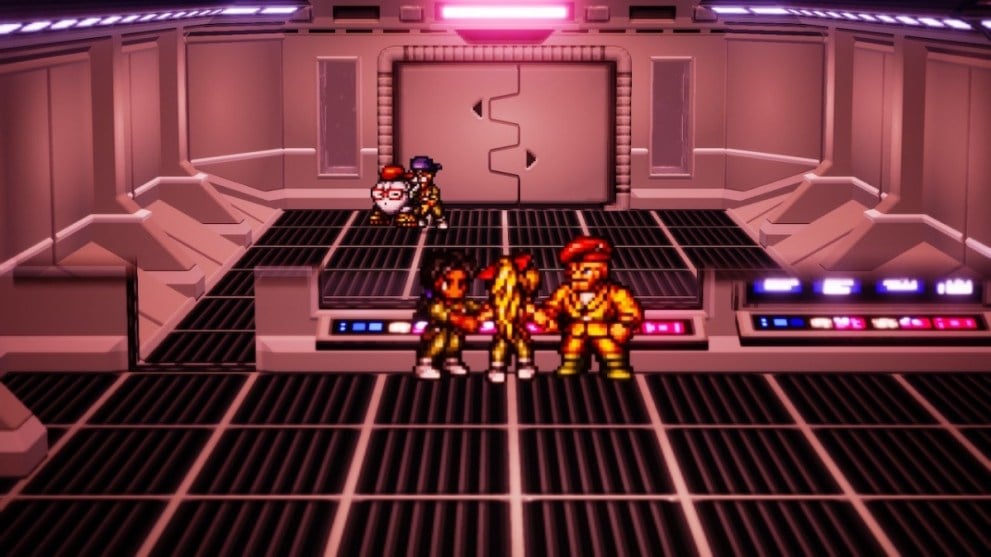
All of the scenarios offered from the start of the game are complete, standalone stories; each took me between an hour and a half at the shortest to about three hours at the longest to complete. Because of their lengths, none of these stories felt too dragged out, so the ones that I didn’t click with the most didn’t feel like a pain to finish.
After finishing the seven main scenarios, an eighth opens up that follows a knight in the middle ages. This story is much darker and more mature in tone, and it sets up the final chapter of the game.
This ninth and final chapter is the thread that ties everything in the game together. Before reaching this point, I was starting to doubt that everything would connect after all. However, it is all worth the very long buildup.
I won’t go into the premise too much to avoid spoiling the story for you, but this final chapter is much more reflective of a typical JRPG, and all of the protagonists from the previous scenarios are involved. There are optional areas and story details to explore along with throwbacks and references to each of the chapters.
Essentially, there is plenty of content to look forward to after completing those seven bite-sized stories. There are multiple different endings, promoting the replayability of the final chapter. The way it ultimately ties together might feel a bit rushed at the end, but it certainly doesn’t feel forced.
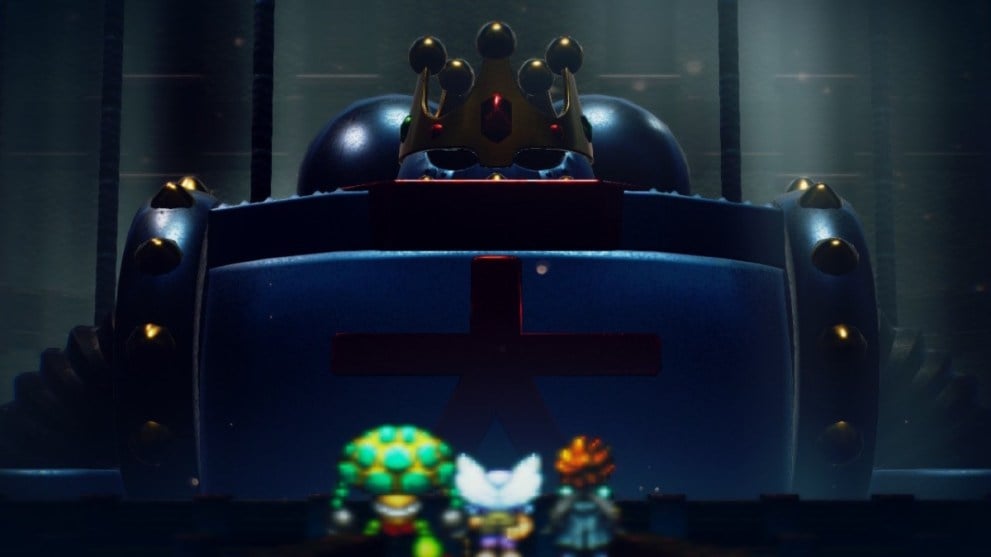
I want to take some time to praise two other things in Live A Live. First, the soundtrack is fantastic. The music is right on par with comparable JRPGs like Chrono Trigger and Final Fantasy III. There are repeating musical motifs across the chapters, and I had many of the themes stuck in my head while I wasn’t playing. Second, the HD-2D graphic style that Square Enix has mastered continues to be stellar. The environments are vibrant with impressive detail. Live A Live is one of the most beautiful games on the Switch.
I did not play the original Live A Live on the Super Famicom, so I can’t speak to all of the exact quality of life improvements to the game that were made for this remake. However, I can say that the menus are very easy to navigate, there are plenty of opportunities to save, and the tutorials explained the gameplay concepts clearly.
What I did not love about Live A Live was the odd balancing, and I wonder if Square Enix stayed very true to the original and did not fix some of the issues the original may have had. Most of the game is a breeze combat-wise, but there were a few instances of difficulty spikes out of nowhere. In many of the scenarios, it’s clear where to go and what to do, but in other parts, it was all up to trial and error with zero direction to figure out what to do.
Another minor frustration I had involved the controls for movement. The characters can walk or run with the analog stick depending on how much it is tilted, but it felt hard to control this, especially when walking vertically or diagonally. I think this is a function of the sprite characters on the 2.5D plane, but I found myself frequently annoyed with getting my character to move the way I wanted it to.
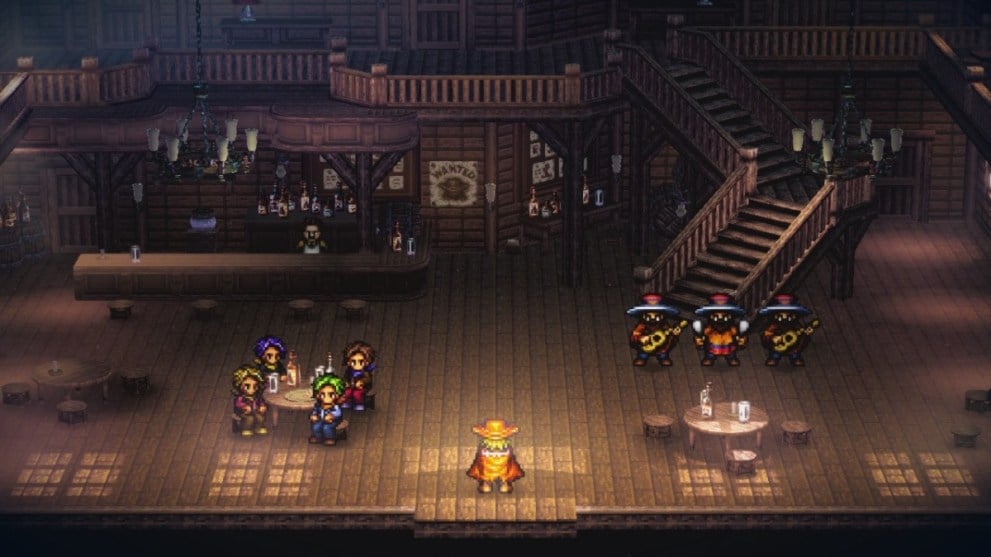
Ultimately, I loved my time with Live A Live. The variation in the scenarios held my attention and made me eager to play on to see what was next. I can’t help but wonder if this game would be in the modern conversation of classic JRPGs had it been released worldwide back in 1994. I hope it stays part of the conversation now.
I implore anyone who enjoyed JRPGs of the 90s, especially the ones by Square itself, to give Live A Live a try. It’s filled to the brim with variety, humor, and interesting narratives. It may not be perfect or surpass your childhood favorites, but fans of the genre will find a place in their hearts for it nonetheless.
Pros
Cons
Not every scenario had a great story.
